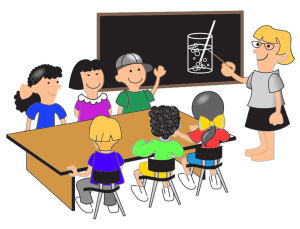Here’s my take on what Life Skills are and why it is critical to impart them to students from a young age.
What are life skills?
The WHO (World Health Organisation) defines Life Skills as “the abilities for adaptive and positive behaviour that enable individuals to deal effectively with demands and challenges of everyday life.” As per the WHO, 10 basic skills that come within the ambit of life skills are critical thinking, creative thinking, decision-making, problem-solving, effective communication, interpersonal relationship, self-awareness, empathy, coping with emotions and coping with stress.
In other words, life skills are those skills that a person either learns or, acquires as a result of some experience; which he/she uses to overcome the daily trials and tribulations that he/she faces. These skills help a person to manage his/her life better and improve competence. However, there is no consensus on what exactly comprises life skills. Many experts also include learning skills, leadership skills, and money and time management skills as life skills.
How important are Life Skills?
Did you know that as per the India Skills Report, (CII, Wheebox and PeopleStrong; 2015), only 37 percent of Indian graduates are employable. This obviously indicates that while we inundate our students with a lot of theoretical knowledge, we do not prepare them when it comes to functioning effectively in the corporate world. Incidentally, the skills that are considered to make a person employable include life skills.
How many of us have been taught how to make good decisions, communicate effectively or cope with stress as a part of our curriculum at school? Not everybody! Some of us may have acquired these skills ourselves, either through the guidance of our family or by learning from various experiences. Yet, if we introspect, we’ll realise that these skills are more important to learn than to know the year in which Babar ascended the throne or the chemical composition of sulphuric acid. Wouldn’t we have been better off if there was a fun way to learn all these skills at school so that we would have been better prepared to face any situation that life presents?
Should life skills be imparted at an early age?
Yes, the earlier, the better. Young infants do not know how to walk. They learn it through practise and soon it becomes second nature to them. Similarly, when life skills are taught from a young age, these lessons are internalised and they are carried out without thinking. For instance, when children learn the skills of critical thinking, creative thinking, decision-making, problem-solving and conflict resolution, it helps them to tackle any tricky situation in a constructive manner and gives them the confidence that they can solve it.
Similarly, if they are taught empathy, self-awareness and coping with emotions at a young age, they will be more adept at interacting with others with equanimity and to understand the other person’s point of view. This will eventually result in a harmonious society.
Benefits of teaching life skills
There are innumerable benefits of teaching life skills. These benefits have a ripple effect. They first start by improving the quality of school life. As the students internalise the life skills, when they grow up, these skills are applied by them every day, thus improving the quality of lives of those who interact with them. However, to simplify, we can classify the benefits as follows:
Benefits to the individual
- Improves discipline and reduces the rate of absenteeism in school
- Improves learning skills and enables students to perform better
- Helps in building one’s character through introduction of positive values and role models
- Helps them to choose like-minded and supportive friends
- Teaches essential skills such as money management and time management
- Helps to approach problems with a positive attitude and solve them creatively
- Enables them to make better decisions and thereby improving the choices made
- Reduces risky behaviour
- Increases self-confidence and self-esteem
- Increases sensitivity towards others’ feelings
- Promotes a sense of well-being
- Enables them to be empathetic and appreciative of others
- Promotes a sense of responsibility towards one’s work and the society
- Helps develop to full potential
Impact on future employability and benefits to the economy
- Improves the confidence and motivation levels of the individual
- Improves the ability to work effectively in a group
- Improves ability to adapt to varying situations
- Better critical thinking, problem solving and decision-making skills improve the quality of work done
- Helps in increasing productivity due to better time management skills
- Increases leadership skills
- Better money management skills ensure that any income is wisely invested thus increasing the economic growth
Benefits for the society
- Develops greater tolerance and appreciation for religious and cultural diversity
- Enables the individuals to interact in a positive manner in society and resolve conflicts in a peaceful manner
- A greater sense of responsibility towards the society ensures that the individuals do their bit towards giving back to the society
The above-listed benefits are only a few of the many that Students stand to benefit. Students who receive life skills lessons become more balanced, mature, confident and competent. Thus, when such students become adults, they evolve into confident and invaluable assets of the country thus making it a more tolerant, productive and positive place to live in.





